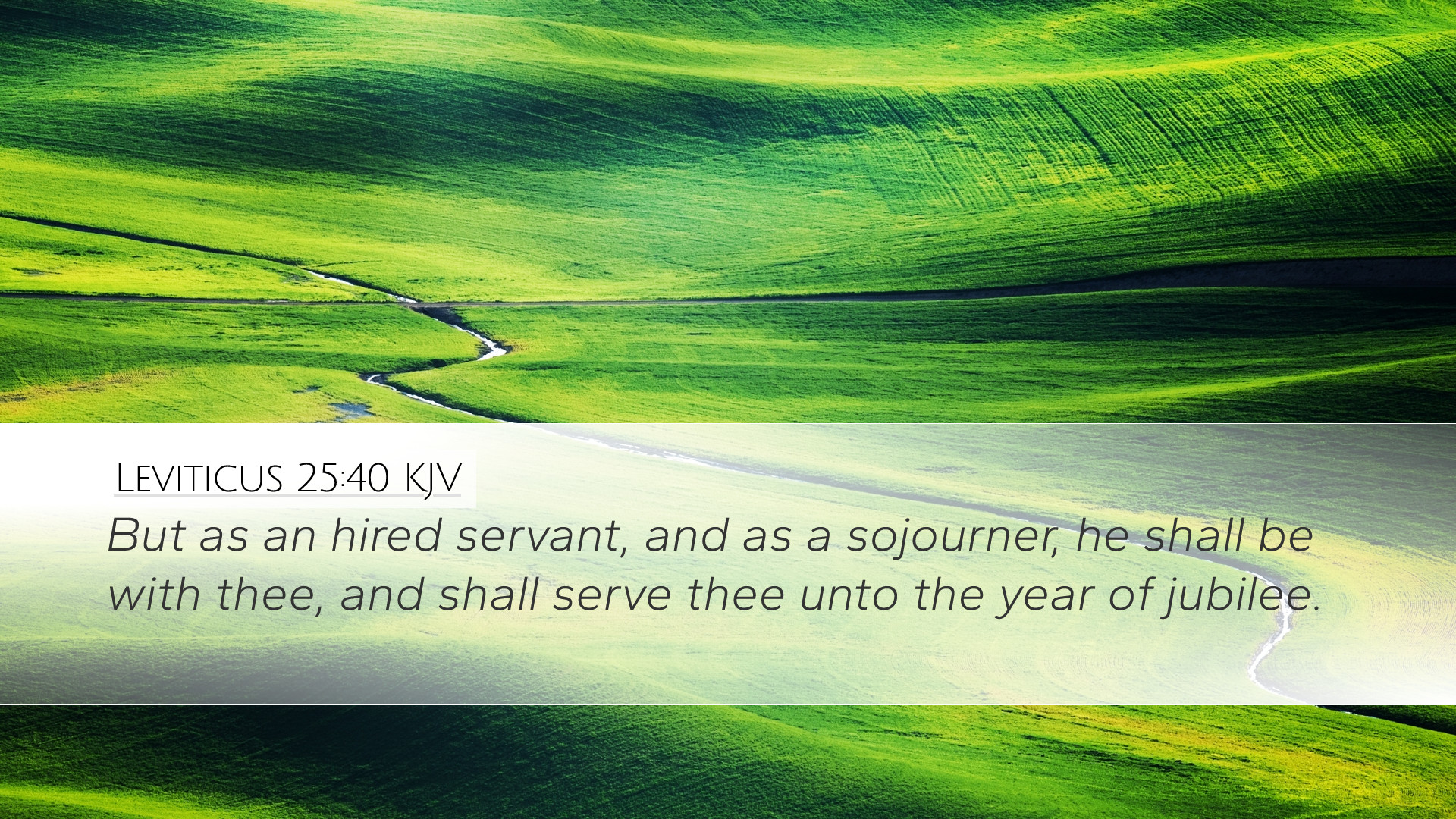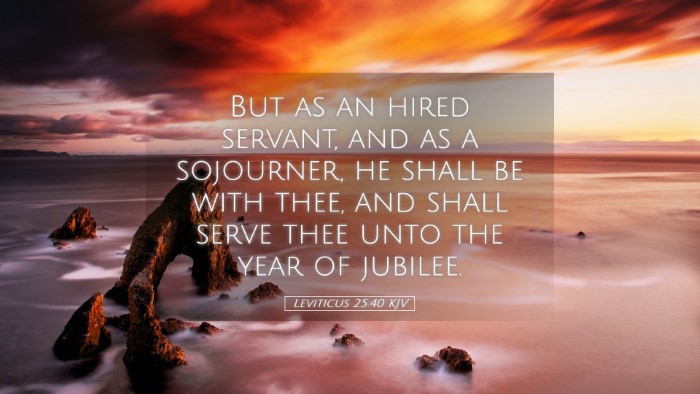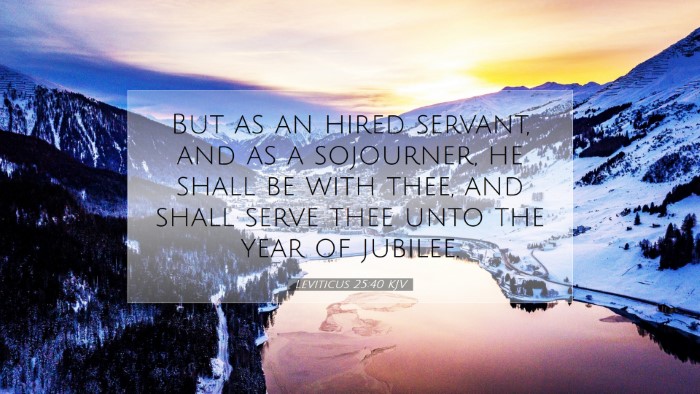Commentary on Leviticus 25:40
Text of the Verse: "But as a hired servant, and as a sojourner, he shall be with thee, and shall serve thee unto the year of jubilee."
Introduction
Leviticus 25:40 offers profound implications concerning servitude, dignity, and restoration. This particular section of the Mosaic Law addresses the treatment of individuals who find themselves in economic distress, revealing both God's concern for justice and the anticipation of ultimate restoration woven throughout Israel's legislation.
Contextual Background
The broader context of Leviticus 25 discusses the sabbatical year and the Year of Jubilee, emphasizing the cycles of rest and redemption that the Israelites were mandated to observe. In this chapter, God establishes guidelines for the Israelites to follow, ensuring that economic disparities are addressed and the dignity of every individual is upheld.
The Year of Jubilee
The Year of Jubilee (every 50 years) serves as a critical point of economic and social justice, as it mandates the restoration of property to families and the freedom of slaves. The practice illustrates God's desire to maintain equality among His people.
Commentary Insights
Matthew Henry's Commentary
Matthew Henry emphasizes the importance of mercy and compassion in the treatment of servants. He notes that in calling for a servant to be treated as a sojourner, God acknowledges the humanity of the individual in servitude and the need for preserving human dignity. “He shall be with thee as a hired servant,” conveys a temporary relationship, highlighting that servitude is not an eternal state but a provision for a specific time ultimately leading to liberation.
Albert Barnes' Notes on the Bible
Albert Barnes provides further insights into the cultural implications of servitude in ancient Israel. He asserts that this verse draws a line between a permanent servant and one that is temporarily in servitude due to economic circumstances. “The distinction,” Barnes writes, “is vital for understanding the nature of service within the covenant community.” Such classifications indicate that while one may serve, their identity transcends their status, affirming their worth in God’s eyes.
Adam Clarke's Commentary
Adam Clarke highlights the theological ramifications of servitude as prescribed in this verse. He points out that viewing a servant merely as a hireling implies that service should be marked by fairness and respect. Clarke argues that the element of the Year of Jubilee embedded in this law reminds us that ultimately, all humanity is under God's sovereignty, and restoration is a key theme throughout Scripture. “As a sojourner,” Clarke explains, signifies that all are pilgrims on the earth, seeking the greater promise.
Theological Reflections
This verse serves multiple theological reflections, with particular focus on:
- The Dignity of the Individual: Every person, regardless of their circumstances, possesses inherent dignity that must be respected.
- The Nature of Work and Service: Servitude, framed within a context of compassion and temporal circumstance, undermines the idea of perpetual servility.
- God's Justice and Mercy: The laws provided reflect God’s character, which focuses on justice, mercy, and the eventual restoration of all to their rightful places.
Application for Today
In considering Leviticus 25:40 directly in our contemporary context, the application is profound for pastors, theologians, and students of the Word:
- Church and Community Responsibility: Just as the Hebrews were responsible for the humane treatment of servants, modern communities of faith are called to uphold justice for the vulnerable, understanding that economic misfortune does not warrant diminished respect.
- Temporary Trials: The recognition that trials and struggles are often temporary invites a perspective of hope and restoration in God’s plan.
- Invitation for Restoration: The Year of Jubilee stands as a metaphor for the ultimate redemption found through Christ, challenging us to participate in God's restorative work, offering grace, forgiveness, and second chances.
Conclusion
Leviticus 25:40, read in light of its historical and theological context, invites ongoing reflection on the nature of servitude, dignity, and God's overarching narrative of restoration. This commentary, drawing from various esteemed public domain authors, reinforces the timeless principles contained within Scripture, encouraging continued dialogue and conversion of these insights into practical, everyday application for believers.


